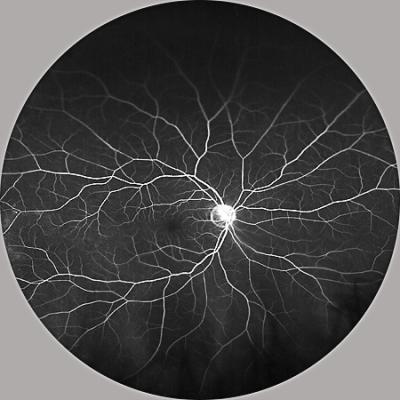A pilot, “look-back” study of information about 106 patients with “wet” age-related macular degeneration (AMD) treated at the Wilmer Eye Institute at Johns Hopkins Medicine has revealed that nearly half of patients treated with aflibercept (Eylea) could safely stop eye injection therapy after one year without further vision loss. Only 17% of patients taking another commonly used wet AMD therapy, bevacizumab (Avastin), were able to safely wean from the drug at a year

Image of the retina. Credit: Akrit Sodhi, Johns Hopkins Medicine
“Our results suggest that if we can match the right patient to the best therapy, many patients with macular degeneration may not need lifelong therapy,” says Akrit Sodhi , M.D., Ph.D., associate professor of ophthalmology and the Branna and Irving Sisenwein Professor in Ophthalmology at the Wilmer Eye Institute at the Johns Hopkins University School of Medicine.